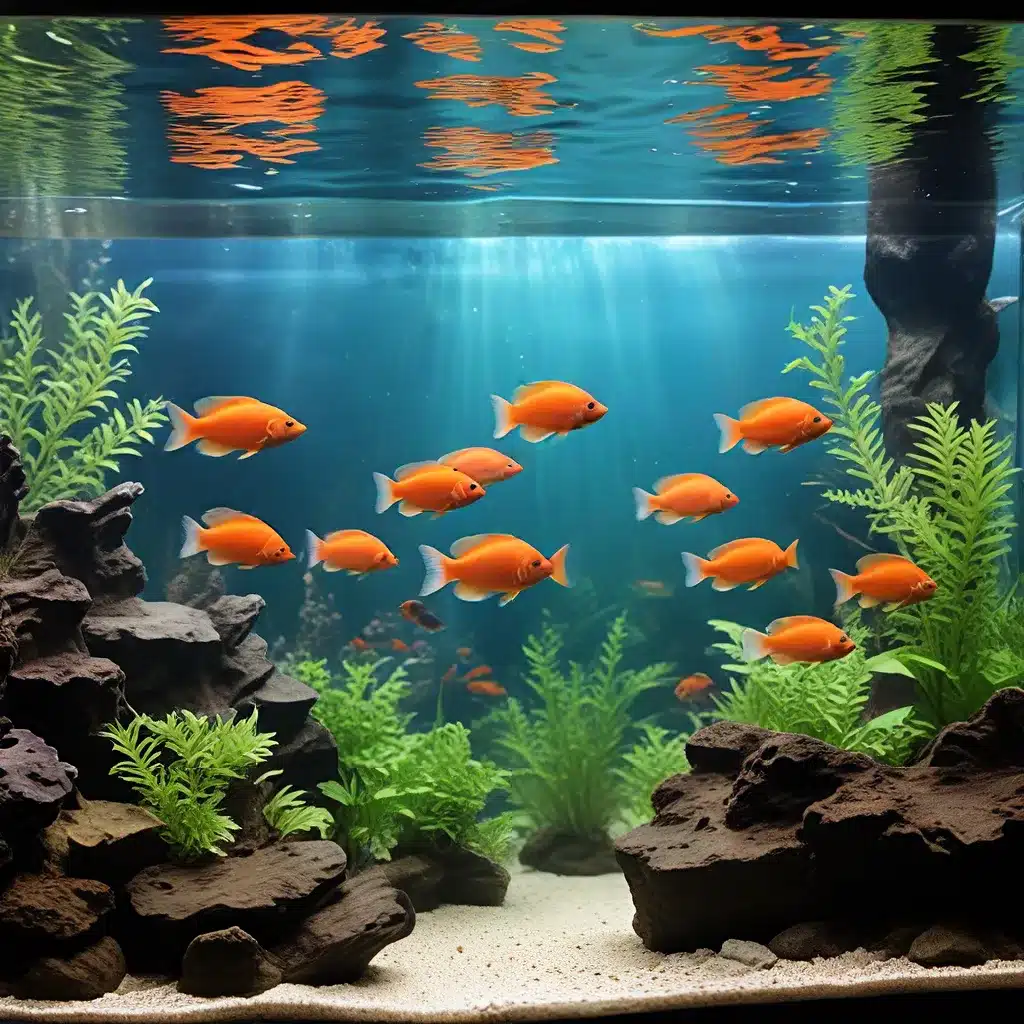
Ethical Aquarium Keeping: Balancing Passion and Responsibility
The allure of aquarium keeping lies in the mesmerizing underwater worlds we can create within our homes. These vibrant ecosystems captivate our senses, providing a tranquil oasis amidst the hustle and bustle of daily life. However, as responsible aquarists, we must consider the ethical implications of our hobby and make informed choices that prioritize the wellbeing of our aquatic companions.
The Sentience of Fish: Debunking Common Misconceptions
Contrary to the belief that fish are simple, unfeeling creatures, recent scientific research has unveiled a remarkable level of cognitive sophistication and emotional capacity in many fish species. Studies have shown that fish can experience pain, display social behaviors, and even exhibit individual personalities. This newfound understanding of fish sentience challenges us to re-evaluate our approach to aquarium keeping and ensure we are providing our finned friends with the care and respect they deserve.
Sustainable Practices in the Aquarium Trade
The aquarium industry has a complex and far-reaching impact on both local and global ecosystems. While the captive breeding of fish and invertebrates has provided a more sustainable alternative, the wild collection of marine species remains a significant concern.
The Toll of Wild Capture
It is estimated that over 95% of marine aquarium fish are collected from the wild, often with devastating consequences. Destructive fishing practices, such as the use of cyanide or physical coral destruction, can irreparably harm fragile reef ecosystems. Additionally, the high mortality rates during capture, transportation, and acclimation to captive environments further exacerbate the ecological impact of the trade.
Captive Breeding: A Viable Solution
Fortunately, the aquarium industry has made strides in promoting the captive breeding of both freshwater and marine species. Captive-bred fish are often better adapted to thrive in aquarium conditions, reducing stress and mortality rates. By supporting breeders and retailers who prioritize sustainable practices, aquarists can play a vital role in conserving fragile marine ecosystems.
Aquarium Size and Complexity: Striking the Right Balance
The size and complexity of an aquarium can significantly impact the welfare of its inhabitants. While the allure of a grand, large-scale reef tank may be tempting, it’s crucial to carefully consider the resources and commitment required to maintain such a system effectively.
Nano Tanks: Manageable Wonders
Nano tanks, with their compact size and simplified setups, can be an excellent choice for beginner aquarists or those with limited space. These smaller systems often require less equipment and maintenance, making them a more accessible and sustainable option for many hobbyists. However, it’s essential to research the specific needs of nano-sized species to ensure their wellbeing.
Large-Scale Setups: A Heightened Commitment
While large aquariums can showcase a diverse array of marine life and stunning aquascapes, they also demand a significant investment of time, resources, and expertise. These complex systems require advanced filtration, lighting, and automation systems to maintain stable water parameters and support the needs of larger and more diverse fish and invertebrate populations. Hobbyists must be prepared to dedicate themselves to the ongoing care and monitoring required for the long-term success of a large-scale aquarium.
Responsible Aquarium Selection and Species Compatibility
When stocking an aquarium, the careful selection of species and their compatibility is crucial for the health and harmonious coexistence of your aquatic inhabitants. Researching the specific requirements and behaviors of each fish or invertebrate can help ensure a thriving and sustainable ecosystem.
Avoiding Impulse Purchases
It can be tempting to fill an aquarium with a variety of vibrant and unique fish, but this approach often leads to overcrowding, aggression, and poor water quality. Carefully planning your stocking choices, based on the tank size, filtration capabilities, and species’ individual needs, is crucial for the long-term health and happiness of your aquarium inhabitants.
Prioritizing Captive-Bred and Sustainable Species
When selecting fish and invertebrates for your aquarium, prioritize captive-bred specimens over wild-caught individuals. Captive-bred animals are often better acclimated to the aquarium environment and less susceptible to stress and disease, reducing the risk of premature mortality. Additionally, by supporting breeders who focus on sustainability, you contribute to the conservation of wild populations.
Providing Optimal Care and Enrichment
Ensuring the wellbeing of our aquarium inhabitants extends beyond simply meeting their basic needs. By creating an environment that promotes natural behaviors and provides enrichment, we can enhance the overall quality of life for our finned and invertebrate friends.
Replicating Natural Habitats
Designing aquascapes that mimic the natural habitats of your chosen species is a crucial aspect of responsible aquarium keeping. This not only enhances the aesthetic appeal of your setup but also supports the physical and psychological needs of your aquatic inhabitants. Incorporating appropriate substrate, hiding places, and live plants can help reduce stress and encourage natural behaviors.
Enrichment and Stimulation
In addition to providing a visually appealing environment, aquarists should also consider introducing elements of enrichment to their aquariums. This can include items that encourage foraging, exploration, and social interaction, such as hiding spots, floating plants, and even interactive toys. By stimulating their natural curiosity and activity levels, you can help ensure the overall wellbeing of your aquarium inhabitants.
Conclusion: Embracing Ethical Aquarium Keeping
As passionate aquarium enthusiasts, we have a responsibility to our finned and invertebrate companions to ensure their welfare is at the forefront of our hobby. By prioritizing sustainable practices, selecting appropriate species and tank sizes, and providing optimal care and enrichment, we can create vibrant, thriving aquatic ecosystems that are a true reflection of our respect and stewardship for the natural world.
Remember, the aquarium trade has a far-reaching impact, and our individual choices as hobbyists can contribute to the conservation of fragile marine environments. By embracing ethical aquarium keeping, we can find the perfect balance between our love for these captivating creatures and our commitment to their wellbeing, ultimately creating a harmonious and sustainable future for the aquarium hobby.

